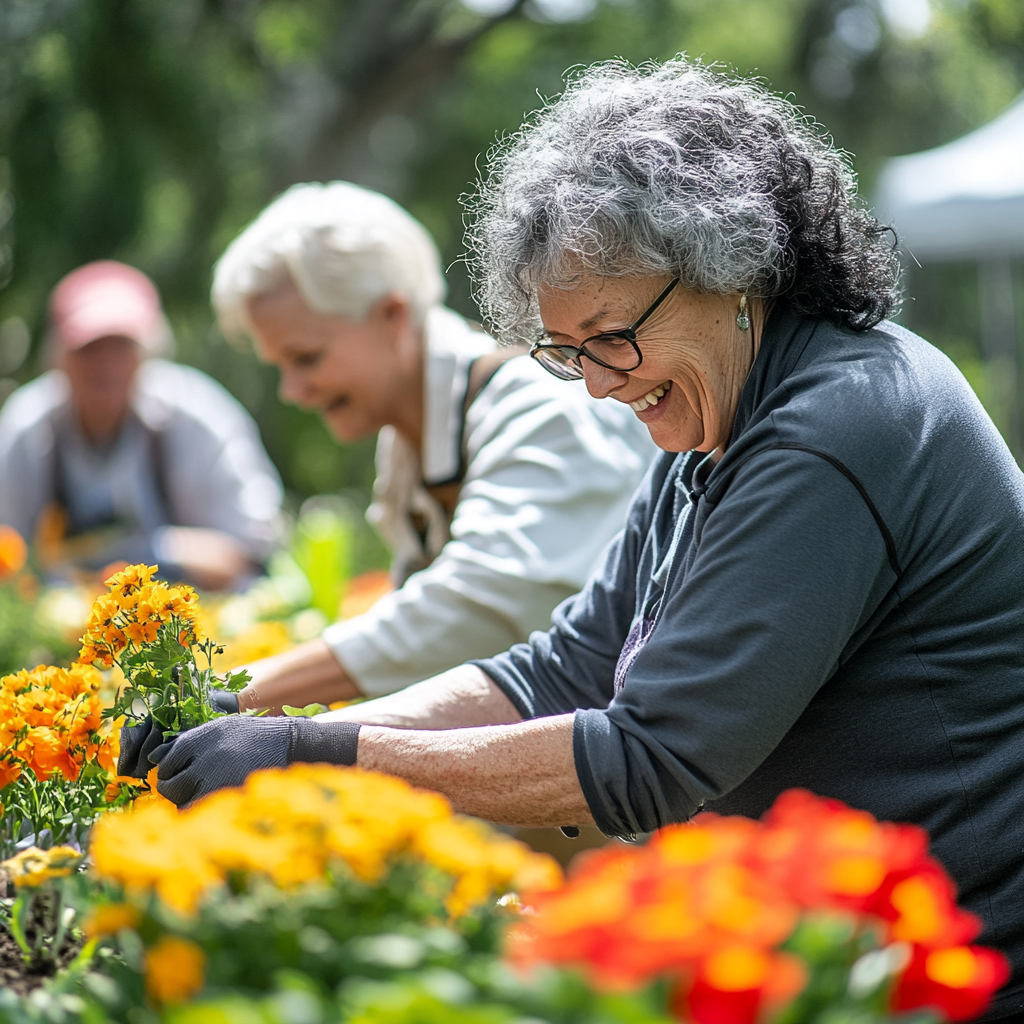Volunteering is a powerful tool for enhancing community life, adding not only value to society but also enriching the lives of those who serve. For seniors, the significance of volunteering can be particularly profound. Engaging in supportive activities can provide crucial physical, mental, and emotional benefits that contribute to their overall well-being.
The Benefits of Volunteering for Seniors
Physical Health Benefits
Maintaining an active lifestyle is vital as we age, and volunteering offers an excellent opportunity to do just that. Engaging in volunteer work can help seniors:
- Stay Active: Many volunteer roles involve physical activity, whether it’s helping at a food bank, participating in community gardening, or assisting in events.
- Reduce the Risk of Chronic Conditions: Staying active through volunteering can contribute to lower risks of conditions such as heart disease, diabetes, and certain types of cancer, ultimately leading to healthier aging.
Mental Health Advantages
Volunteering can have significant positive effects on mental health. Seniors may experience:
- Combating Loneliness: Joining a group or meeting new people through volunteering can alleviate feelings of isolation.
- Enhancing Cognitive Function: Engaging in diverse volunteer tasks stimulates the mind, helping to keep cognitive functions sharp.
- Boosting Mood: The act of giving and being part of a community fosters satisfaction and joy, helping to alleviate symptoms of depression and anxiety.
Emotional Satisfaction
There’s an inherent emotional benefit that comes from giving back. Many seniors find joy and purpose in connecting with others, whether by helping those in need or sharing their knowledge and experience. This sense of belonging and emotional fulfillment reinforces a positive self-image and life satisfaction.
Types of Volunteer Opportunities Available
Seniors have access to various rewarding volunteer opportunities, including:
Local Nonprofits and Charities
Many nonprofit organizations welcome senior volunteers, creating avenues for meaningful contributions. Examples include:
- Food Banks: Helping sort and distribute food to community members in need, making an immediate impact.
- Homeless Shelters: Offering services such as meal preparation, cleaning, or simply lending a listening ear.
- Animal Rescues: Volunteering at shelters to care for animals, walking dogs, or providing administrative support.
Healthcare and Elder Support
Seniors can support their peers through roles in healthcare settings:
- Companionship Visits: Spending time with elderly individuals in nursing homes or assisted living facilities, providing social interaction that greatly enhances quality of life.
- Meal Delivery: Participating in programs that deliver healthy meals to seniors at home.
- Volunteering in Hospitals: Assisting staff, guiding patients, or providing comfort to families in waiting areas.
Education and Mentorship Programs
Seniors have a wealth of knowledge to share and can engage with youth in meaningful ways:
- Tutoring: Helping students with academic subjects or reading programs during after-school hours.
- Mentorship: Sharing life experiences and offering guidance to young adults in various fields.
Environmental Initiatives
Seniors can contribute to their community and the planet:
- Community Clean-Up Programs: Participating in efforts to beautify parks and public spaces.
- Gardening Projects: Engaging in local gardening or conservation projects that benefit the environment.
Arts and Culture
Seniors can find fulfillment in creative local organizations:
- Museums or Theaters: Assisting in event planning, ushering, or administrative roles.
- Art Programs: Leading or supporting workshops to share artistic skills and talents with others.
How to Find Volunteer Opportunities
Finding the right volunteer opportunity can be easy with the following approaches:
Online Resources
Utilize websites dedicated to connecting volunteers with organizations, such as VolunteerMatch, Idealist, and local community boards.
Local Institutions
Community centers, libraries, and faith-based organizations often have resources for volunteer opportunities. They may actively seek out seniors for various initiatives.
Networking
Connecting with friends, family, or acquaintances in volunteer settings can help introduce new opportunities, allowing seniors to explore roles that align with their interests.
Overcoming Barriers to Volunteering
Seniors may face certain concerns when considering volunteer opportunities:
Time Commitments
Emphasizing flexible and short-term options can ease worries—many organizations welcome even a commitment of a couple of hours a week.
Physical Limitations
Explore volunteer tasks that accommodate mobility concerns. Roles that require less physical activity, such as office work or phone-based assistance, can still offer fulfillment.
Easing into Volunteering
If new to the experience, seniors might start with smaller commitments to build confidence and comfort in volunteering.
Creating a Volunteer Network
Seniors can enhance their volunteer experience through community:
Benefits of Forming or Joining a Group
Creating or joining a group of senior volunteers offers numerous benefits:
- Shared Encouragement: Groups provide motivation and support for participation in volunteer work, making the experience more enjoyable.
- Socializing Opportunities: Building friendships through shared volunteer experiences fosters a sense of belonging.
Starting a Volunteer Group
Seniors living in assisted living or retirement communities could initiate a volunteer group, collaborating on projects that contribute to the community while forming friendships.
Tips for a Successful Volunteering Experience
To ensure a fulfilling volunteering journey, seniors should consider:
Aligning with Interests or Skills
Choosing opportunities that resonate with personal passions can enhance enjoyment in volunteer roles. Whether it’s gardening, tutoring, or arts and crafts, matching skills with roles maximizes satisfaction.
Balancing with Self-Care
Maintaining a balanced schedule is essential. Seniors should integrate voluntary activities with self-care practices to ensure their well-being while giving back.
Reflecting on Experiences
Regularly reflecting on their volunteering experiences can reveal personal growth and accomplishments. Acknowledging contributions fosters self-esteem and motivation.
Conclusion
Volunteering provides a transformative opportunity for seniors to give back to their communities while improving their own well-being. Whether through nurturing relationships, sharing knowledge, or cultivating creativity, engaging in volunteer activities can lead to profound personal fulfillment.


